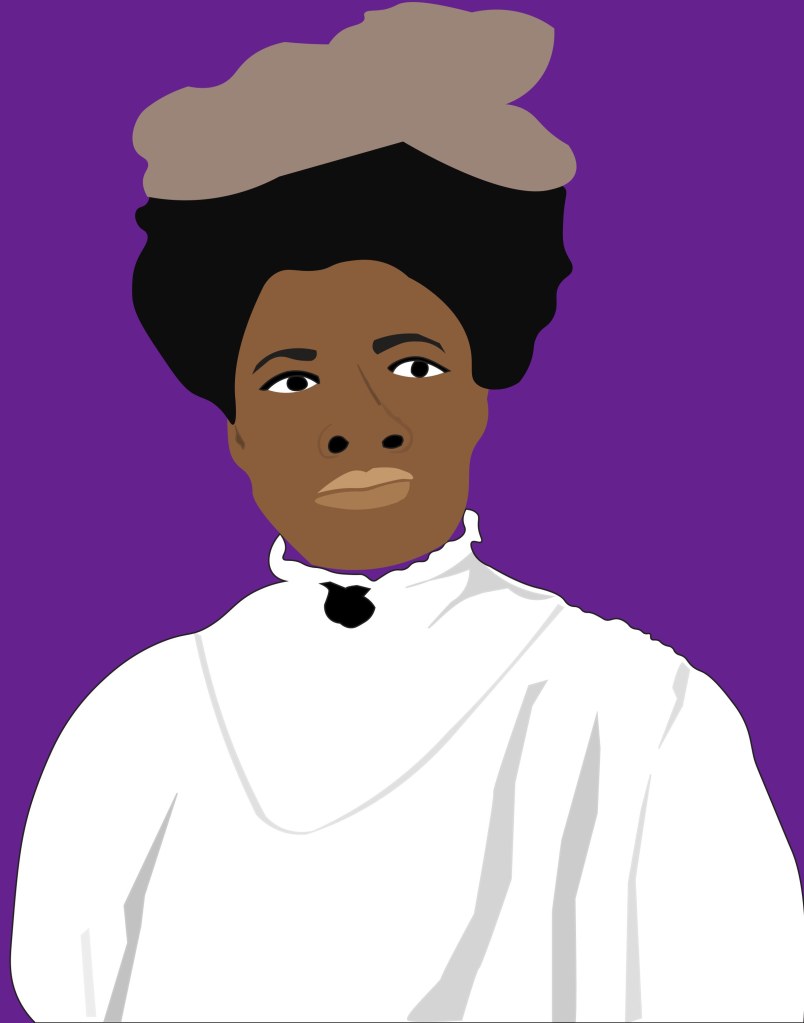Nannie Helen Burroughs meets us at the intersection of gender, race, and profession. She was an educator, civil rights activists, feminist, and businesswoman.
Burroughs was born May 2, 1879, in Orange Virginia. Her parents were formerly slaves, and her father was a farmer and Baptist preacher. Her father died when she was young, so Burroughs and her mother moved to Washing DC.
She attended high school in DC where she met Anna Julia Cooper and Mary Church Terrell, who were suffragists and civil rights activists.
After graduation she applied for a job with the District but could not get one because her skin was too dark. This set in her the determination to ensure women of her skin tone could improve their situation.
From 1898 to 1909 Burroughs went to work for the National Baptist Convention in Kentucky. She was one of the founders of the Women’s Convention and served as president for 13 years. She also found the National Training School in 1908 that provided evening classes for women who had no other means of education.
https://www.nps.gov/people/nannie-helen-burroughs.htm
https://en.wikipedia.org/wiki/Nannie_Helen_Burroughs








